Contraceptive use up but responsibility for family planning still mostly on women
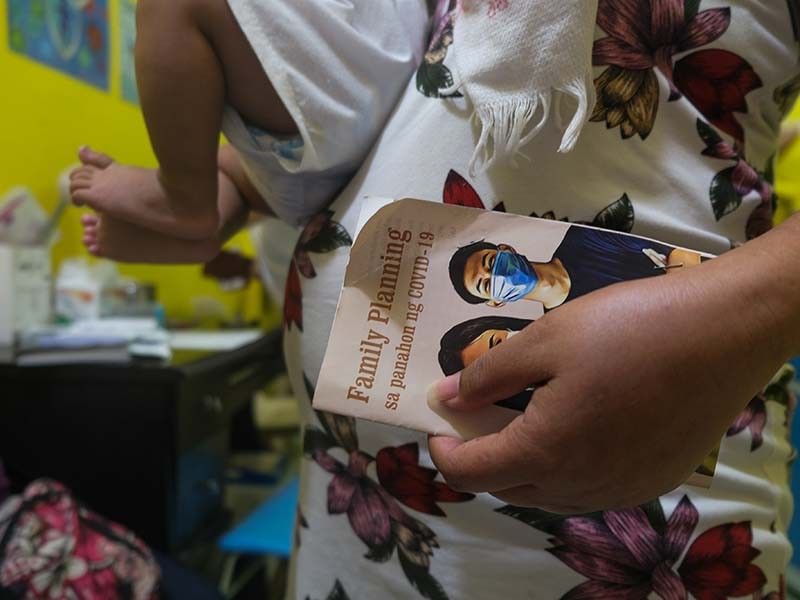
MANILA, Philippines — In April 2021, the Commission on Population and Development (PopCom) recorded that more than 8 million Filipinos used family planning methods during the pandemic, a 6% increase from 2019.
Husband and wife Saldo Aquino and Leslie Paunil were among those who decided to use contraceptives because of the financial burden brought by the spread of COVID-19.
Aquino works as an informal laborer, earning P2,000 for working four days a week. Like many other daily wage workers, his family loses income equivalent to their survival for two weeks when lockdowns are declared.
Dr. Juan Antonio Perez III, Popcom executive director, said more people used contraception because families were worried about pregnancy during the pandemic.
It also helped that health workers intensified house-to-house delivery of modern contraceptives.
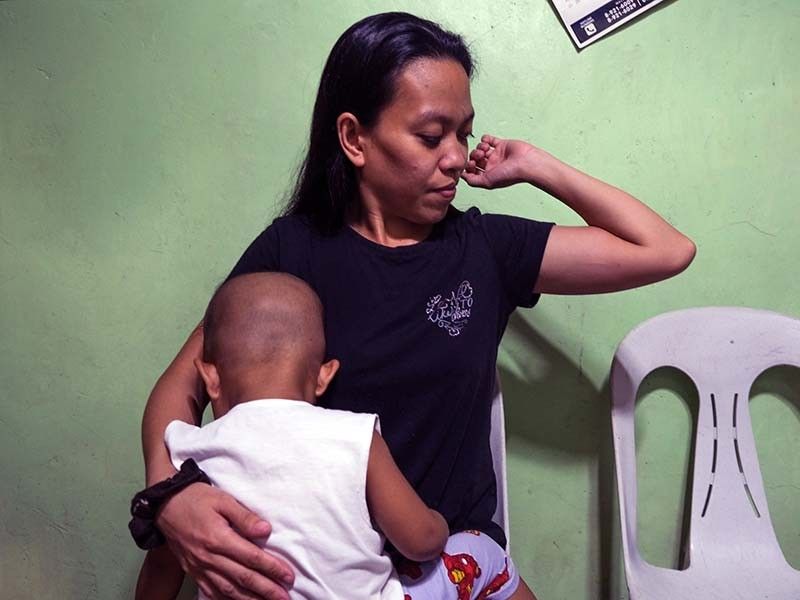
Leslie Paunil shows the implant inserted in her left arm.
For women like Paunil, birth control methods were accessible because she lives close to a clinic of Likhaan Center for Women's Health.
Likhaan Center for Women's Health is a non-profit organization that provides free access to a wide variety of contraceptives and services on sexual and reproductive health.
"I decided to get an implant because there was no way we would survive [if we have] another child," said Paunil. A birth control implant is about the size of a matchstick. It is inserted inside a woman’s upper arm and releases hormones to prevent women from getting pregnant.
Paunil previously used contraceptive pills to prevent pregnancy, but the problem with using pills is she sometimes forgets to take them. Compared to pills, implants ensure women that they would be protected from pregnancy for three years as long as it’s attached to their arms.
"I did not hesitate to use contraceptives because I attended educational workshops from Likhaan which informed my decision,” said the mother of two.
As they both expected, Paunil and her husband spent more time with each other because they were locked at home. They said that it helped that there was a nearby clinic to consult with about family planning.
Changing mindset on contraceptives
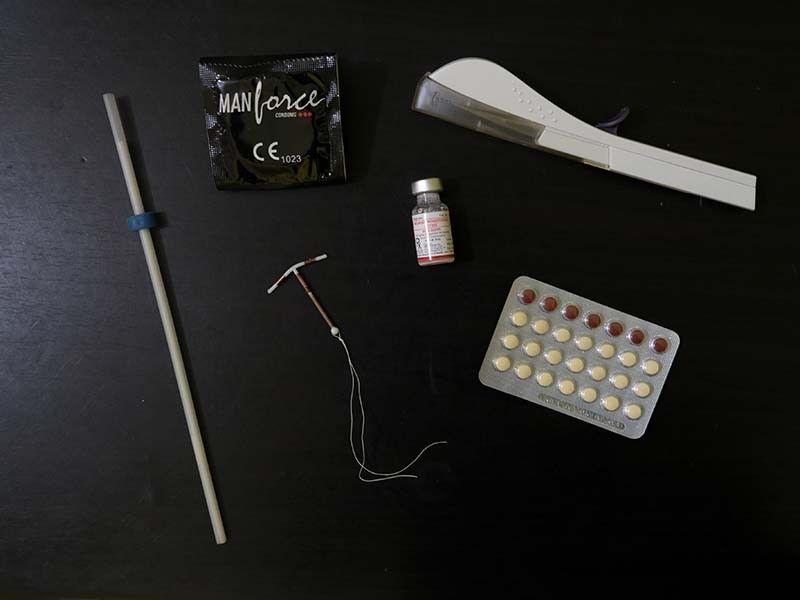
Free contraceptives (implant, condoms, copper IUD, injectible, and pills) available for at Likhaan Center for Women's Health clinics
Dr. Junice Melgar. executive director of Likhaan Center for Women's Health, said that women are aware of their need for sexual and reproductive health services, and there has always been a demand for contraceptives, contrary to what most people assume about them.
Likhaan established clinics in several urban poor communities to link women to health services and to address this need, but the lockdowns and limited transportation options made it difficult to access them.
"Women would walk kilometers just to reach our centers for family planning services because they knew how difficult it would be to be pregnant under these circumstances," said Melgar.
More Filipino women wanted to get implants during the pandemic, but there were limited supplies because of interrupted international supply chain problems, according to data from the United Nations Population Fund.
"The mindset has changed and the demand is more, and now we need to meet the increasing demands of women," said Melgar.
"At this point, it’s not true that women are worried about side effects, of course, there were a few, but that could be easily explained by quality family planning counseling," she added.
Family planning in a patriarchal society
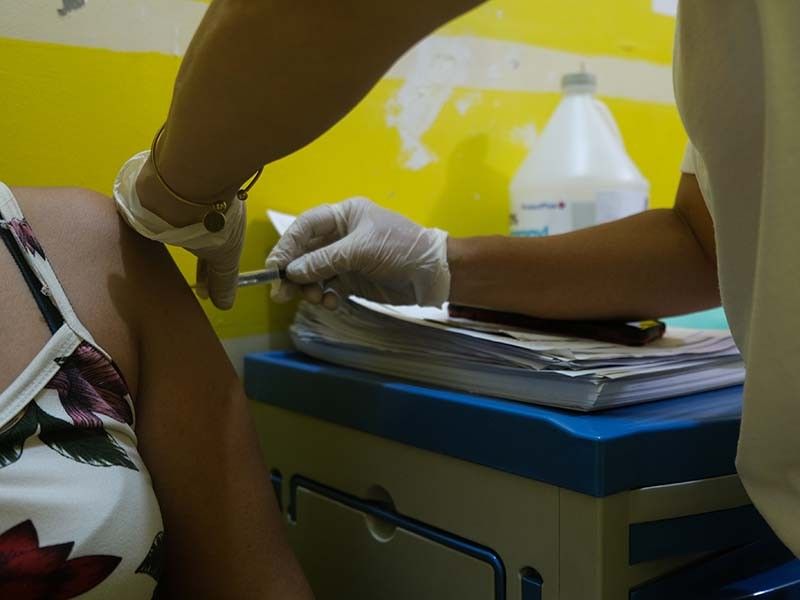
A woman receiving an injectible at Likhaan’s satellite clinic. Injectibles are a form of hormonal birth control for women done every three months.
While there is progress in using contraceptive methods, much of the responsibility still falls on women.
According to "Contraceptive Justice: Why We Need a Male Pill", women bear the financial and health-related burdens of contraception. They're also the ones who dedicate more time to access services and visit health care professionals.
From the 2012 study, women have a total of 11 birth control methods to choose from, while men’s options are limited to only two – male condoms and vasectomy.
Women's birth control methods affect their hormones, while men's options do not. Based on interviews at the health center, women said they gained weight, felt nauseous, and encountered spotting when they started contraception. However, these side effects are normal and temporary.
"I took the initiative to get an implant because my husband doesn't like using condoms," said Paunil.
"If I do not adjust for him, it will just be harder for me if I'll bear the child. I was also aware that the hormonal changes were temporary, and it is okay to be under birth control," she added.
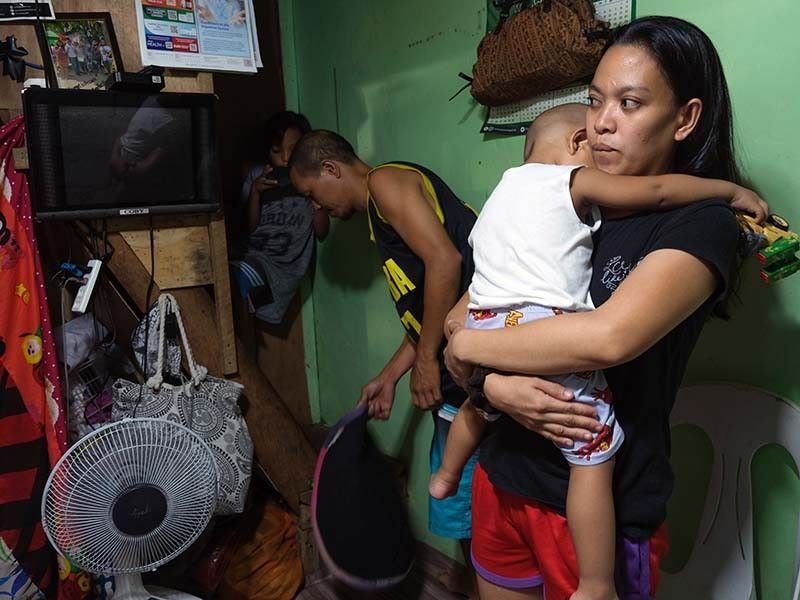
Saldo Aquino and Leslie Paunil inside their home
At home, the division of the tasks between Aquino and Paunil remains traditional.
Aquino, who works long hours as a laborer, is the one in charge of making money. Paunil, who is unemployed, is in charge of maintaining the house, taking care of their children and budgeting their expenses.
Neither of them saw any problems with their dynamic and assumed their roles according to the norms of their community. They also said that they were unfamiliar with concepts on gender roles.
Aquino is not familiar with the term "gender equality", although he recognizes that he and his wife are "partners" with different contributions to the household.
He still believes in common misconceptions on the physical capacities of women, but his experience tells him that it would be impossible to run the household without his wife.
"I think my wife and I are the same. There are things that she can’t do and there are things that I can do, and as partners, we help each other," said Aquino.
Addressing gender inequalities to break systemic inequalities
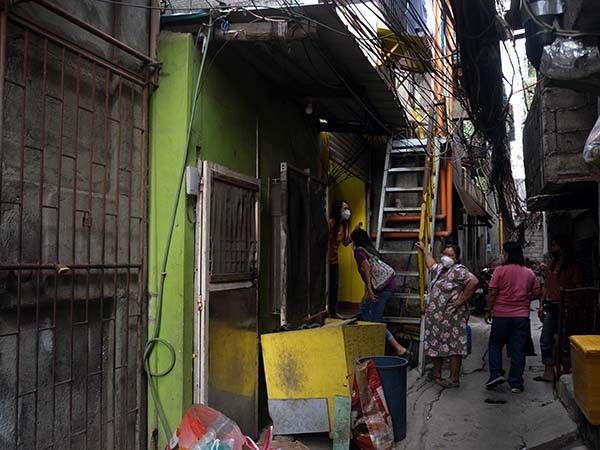
Lina Bacalando with fellow women mobilizers at the Likhaan satellite clinic in Malabon
Lina Bacalando, a community health worker and one of Likhaan’s longest community leaders emphasized the role of organizing to empower women, as a product of grassroots organizing herself.
Bacalando recalled that during the 1990s, she was one of the most persistent attendees of Likhaan's workshops in the urban poor community she lives in.
"I attended their workshops because I was very interested to learn about preventing infant death, providing maternal care and medicinal alternatives," said the 59-year-old community mobilizer.
Because Bacalando learned from Likhaan’s workshops and training, her neighbors run to her to consult on sexual and reproductive health care.
"I was hesitant to be a mobilizer at first because I’ve always thought the type of work Likhaan does is only for people who finished their studies. But because I saw the need of my neighbors and because they trusted me, it made it reasonable for me to assist them in their concerns," said Bacalando.
More than learning about maternal care, attending educational seminars also informed Bacalando on women's and people's rights. She became aware of the inequalities in society and realized that the gender roles she learned in the past weren't always correct and were not set in stone.
"I live in an urban poor community and, through workshops, I learned that issues on demolition, health, and gender are intersectional," she said.
But spending more time in the organization and being an active mobilizer made her husband upset.
"You never know when a pregnant woman needs your help, so I was always away. The more I was awakened, the less I stayed at home, and of course, that disappointed him," said Bacalando.
She started breaking traditional patterns in their household, which caused fights and changed their relationship. But, through tireless explaining, her husband eventually understood. Today, she and her husband are still together.
Meanwhile, back in Aquino and Paunil’s home, Leslie is caught between finding a job to contribute additional income for their household and staying with their children.
Her only option is to work the night shift at a factory, and similar to their case with contraceptives, Paunil would be the one making the most adjustments.
"Because my husband is working during the day and I have to take care of the kids when he’s away, I can only work the night shift. I’ll just have to adjust again, but given our present worries, it’s not much," she said.
Bacalando said it may have taken her years for her husband to understand her choice and the shift in their household dynamic, but she remains hopeful that more women when informed and empowered, can do the same.
"If I was able to change the cycle in our family because I was empowered by my community, I believe other women can also do the same," said Bacalando.
--
This story was produced with the support of Oxfam Philippines.
- Latest
- Trending































